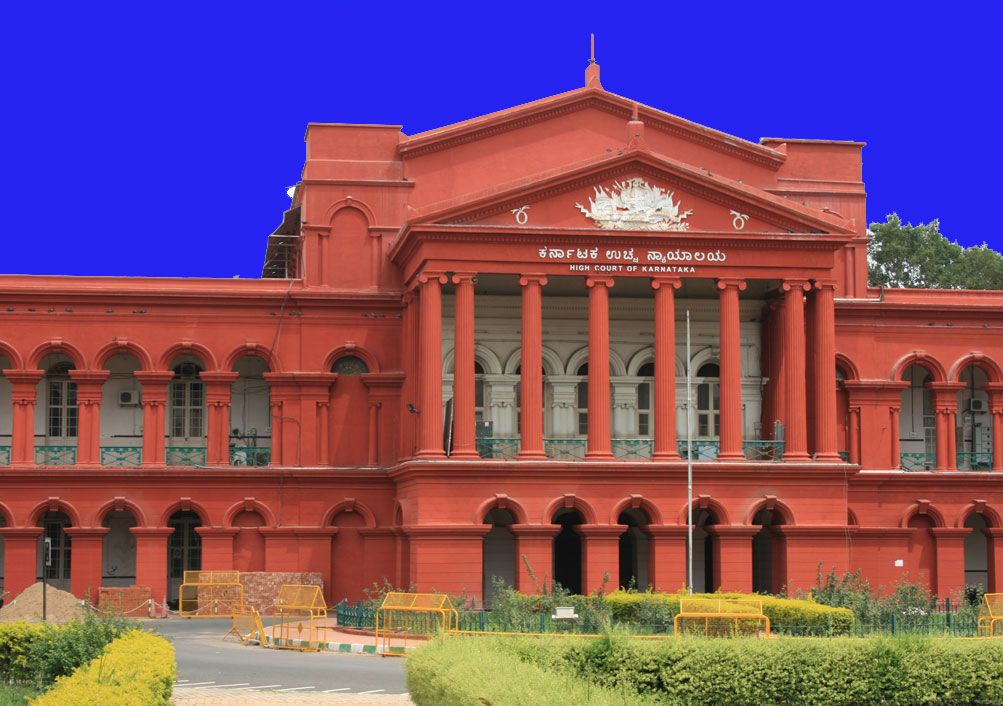In W.A.NO.1285 OF 2021 (LA-BDA)- KAR HC- Strict rules of pleading do not apply to proceeding under Article 226 of Constitution and Court in exercise of such powers can mould relief: Karnataka HC Justices Alok Aradhe & J.M.Khazi [09-06-2022]

Read Order: The Commissioner Bangalore Development Authority v. The State Of Karnataka
Tulip Kanth
Bengaluru, June 22, 2022: In a case of land acquisition, the Karnataka High Court has set aside the order of a Single Judge, who had transgressed beyond the scope of the writ petition and granted such a relief which was even not sought for by the petitioner.
The Division Bench of Justice Alok Aradhe and Justice J.M.Khazi asserted, “We are conscious of the well settled legal position that strict rules of pleading do not apply to a proceeding under Article 226 of the Constitution of India and this Court in exercise of powers under Article 226 can mould the relief.”
The facts leading to the filing of this appeal were that M/s. Surabhi Seva Sangha (Sangha) had allotted a site to the wife of the second respondent (petitioner). The Authority issued a preliminary notification under Section 17(1) of the Bangalore Development Authority Act, 1976 for acquisition of lands including the aforesaid plot in question. Thereafter, an award was passed and the possession of the land was taken. A notification was also u/s 16(2) of the Land Acquisition Act, 1894.
When the Authority sent a recommendation to the State Government for deletion of plot in question as well as other lands from the acquisition and no action was taken on the said recommendation, some Sangha and 2 others filed a writ petition which was disposed of with a direction to the State Government to consider the recommendation submitted by the Authority. The State Government, rejected the recommendation made by the Authority inter alia on the ground that the possession of the land was already taken and therefore, the land in question cannot be released from acquisition.
The aforesaid order passed by the State Government was challenged by the petitioner in a writ petition which was disposed of with a direction to the petitioner to register herself as an applicant for allotment under Bangalore Development Authority (Allotment of Sites) Rules, 1984 and was also directed to pay only the registration fee and the Authority was directed to allot a site to the petitioner in Bangalore at the prevailing allotment prices. The order passed by the Single Judge had been impugned by the appellant in this appeal.
According to the Bench, the petitioner had not laid out any factual foundation in the writ petition about her entitlement to make an application for allotment under the 1984 Rules or her entitlement to seek allotment of a plot measuring 40 x 60 feet. Also, the petitioner had not averred anywhere in the petition that she was entitled to seek the benefit of the decision of this Court in earlier decisions.
It was also opined by the Bench that the Single Judge in the absence of any averment, could not have adjudicated the entitlement of the petitioner for allotment of a land and could not have recorded a finding that the case of the petitioner was similar to that of the judgment in Junjamma & Others v. The Bangalore Development Authority & Others. Not only this but the Authority was not put to notice by the Single Judge with regard to the reliefs granted in the writ petition.
In view of the preceding analysis, the BencH concluded this matter by stating that the impugned order couldnot be sustained in the eye of the law. However, liberty was reserved to the petitioner to take recourse to such remedy as may be available to her in law with regard to her grievance.
Sign up for our weekly newsletter to stay up to date on our product, events featured blog, special offer and all of the exciting things that take place here at Legitquest.




Add a Comment